Artnet Auctions
Painter Marc Guiragossian on Why He Allows His Unconscious to Drive His Creative Practice
The 26-year-old artist's vivid paintings are now available on Artnet's Buy Now platform.
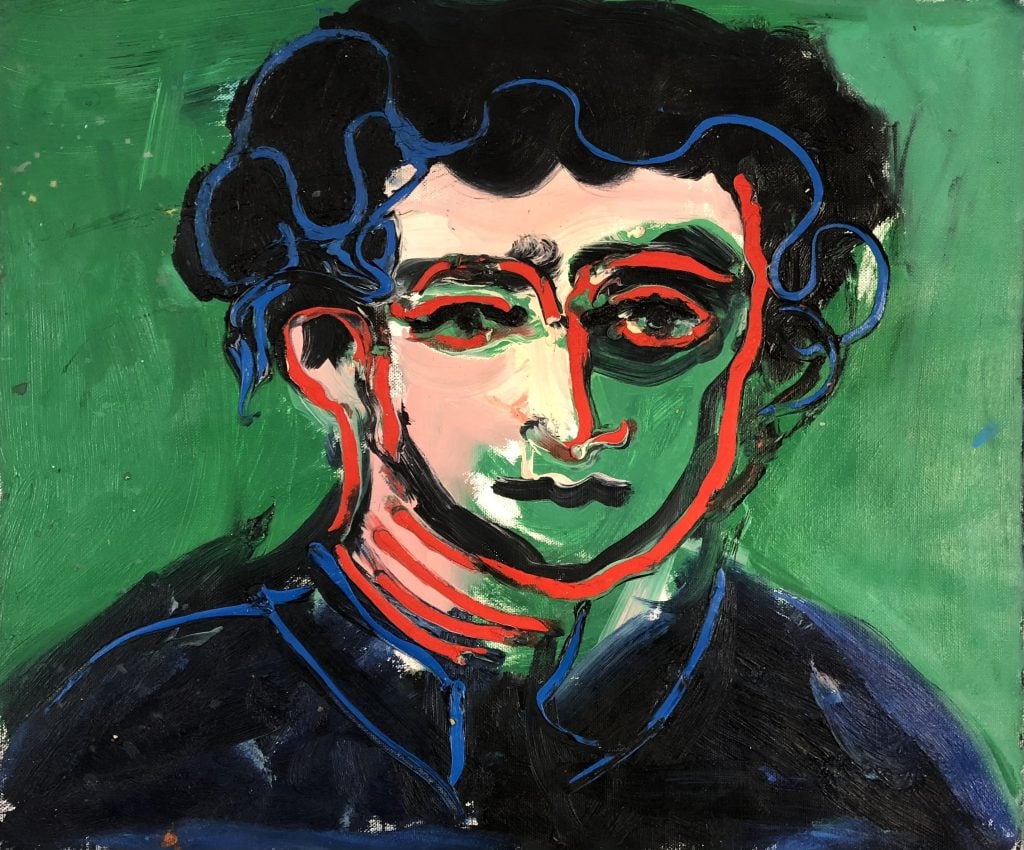
The 26-year-old artist's vivid paintings are now available on Artnet's Buy Now platform.

Samantha Baldwin

It’s no surprise that Marc Guiragossian became a painter. The grandson of renowned Neo-Expressionist painter Paul Guiragossian and the son of artist Emmanuel Guiragossian, Marc Guiragossian belongs to a lineage of gifted artists who inspired him to create.
The 26-year-old’s paintings evoke Sigmund Freud’s analysis of the unconscious through a symphony of vivid color, gestural brushstrokes, and art historical references. For Guiragossian, the evolution of art is not a linear process, but an inexhaustible exchange between aesthetic moments of the past and present.
On the occasion of Artnet’s current Buy Now sale, live through May 4, we spoke to Guiragossian about about his creative upbringing, and how he developed his own signature style.
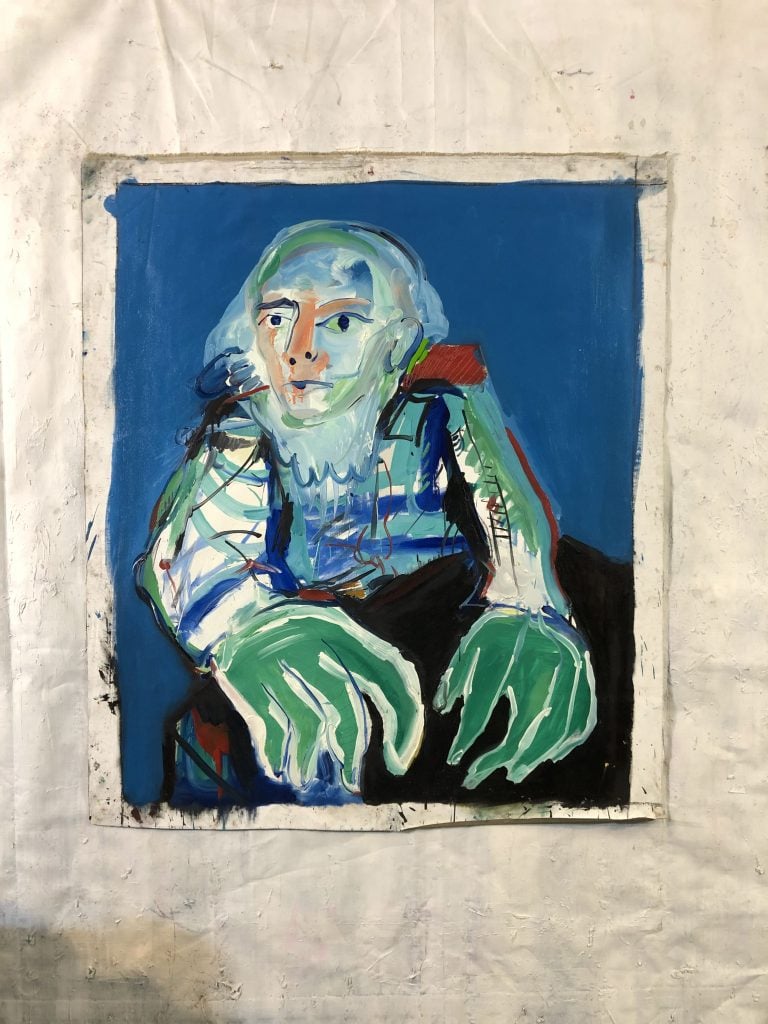
Installation view of Seated Harlequin, 2019. Available now for immediate purchase in Buy Now: Marc Guiragossian.
Throughout your life, you’ve been surrounded by gifted painters. At what point did you realize that you wanted to become a professional artist, too?
I have been surrounded by a lot of artists. It was very normal to me that everyone around me was creative. I have been in love with art ever since I was a kid, and I knew it was my destiny early on. There wasn’t a point in my life where I had to self reflect on picking art as my profession. Instead, I would ask myself what it would be like to not do art as a profession.
How has your grandfather, Paul Guiragossian, influenced your artistic practice?
My grandfather Paul and my father Emmanuel have influenced me immensely. As a kid I grew up watching his large, explosive, colorful paintings. His color palette always impressed and influenced me, and still does today. I would ask myself, how can someone be this free when they paint? How can someone without conscious effort make something so beautiful just by an emotion, a feeling alone. I learned that I am more excited about art that comes from intuition, from within, like Sumerian cave drawings.
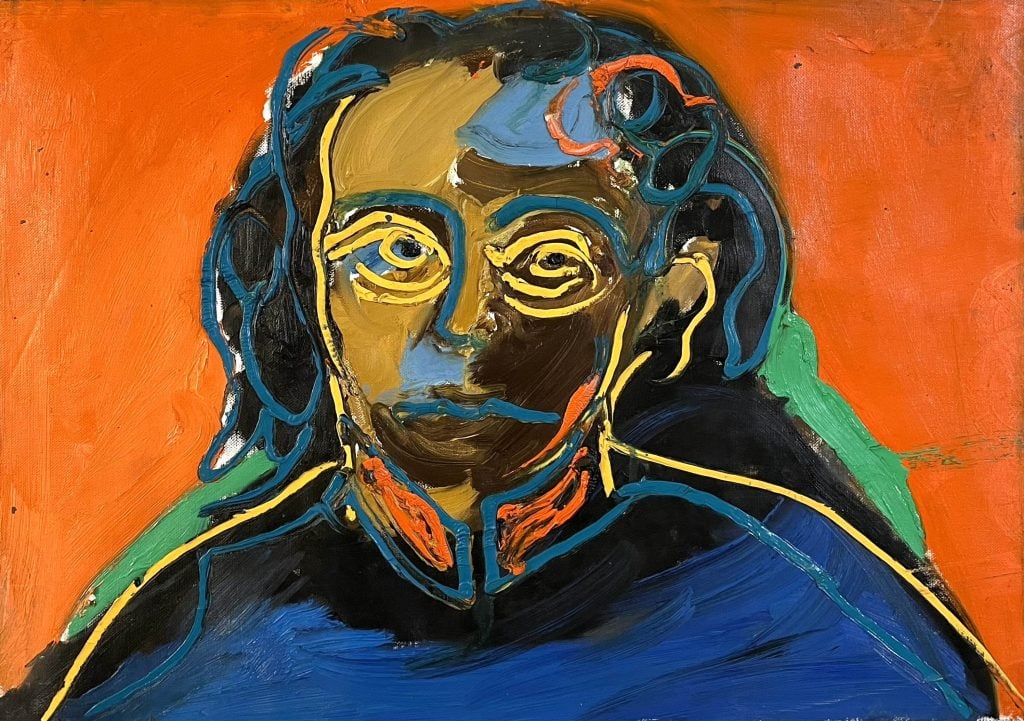
Marc Guiragossian, Head of a Man (2019). Available in Buy Now: Marc Guiragossian.
Can you tell us more about your creative process? How does a painting go from an idea to a finished product?
I would love to talk about my creative process but to me that ruins the entire joy of looking at my works. I mainly focus on the unconscious mind, and I have no idea how an idea becomes a finished product. It just happens.
Do you create your portraits from memory, or do you work from reference images or other artworks?
I sometimes create from memory and sometimes I create from reference. I am really interested in Surrealism and the unconscious mind. Sigmund Freud said that the unconscious is the primary source of human behavior. He also stated that our experiences and feelings are powerfully influenced by our past. I believe that some of the answers I get in life are from painting from memory. All of the answers we are looking for are within us, it’s just a matter of how you can express it, and how you can get it out of you. I have taken a lot of references by other artists, such as Rembrandt’s self-portraits, Hans Holbein, El Greco, and Lascaux cave art.
Why painting and not another medium? What type of paint do you work in, and why?
The first thing I fell in love with was painting; it stuck to me. My father also introduced me to sculpting, which I will explore more in the future. I work mainly with oil as it’s a lot more vibrant and has much more tones than acrylic. But if you ask any experienced artist, they work with anything that has pigment in it.
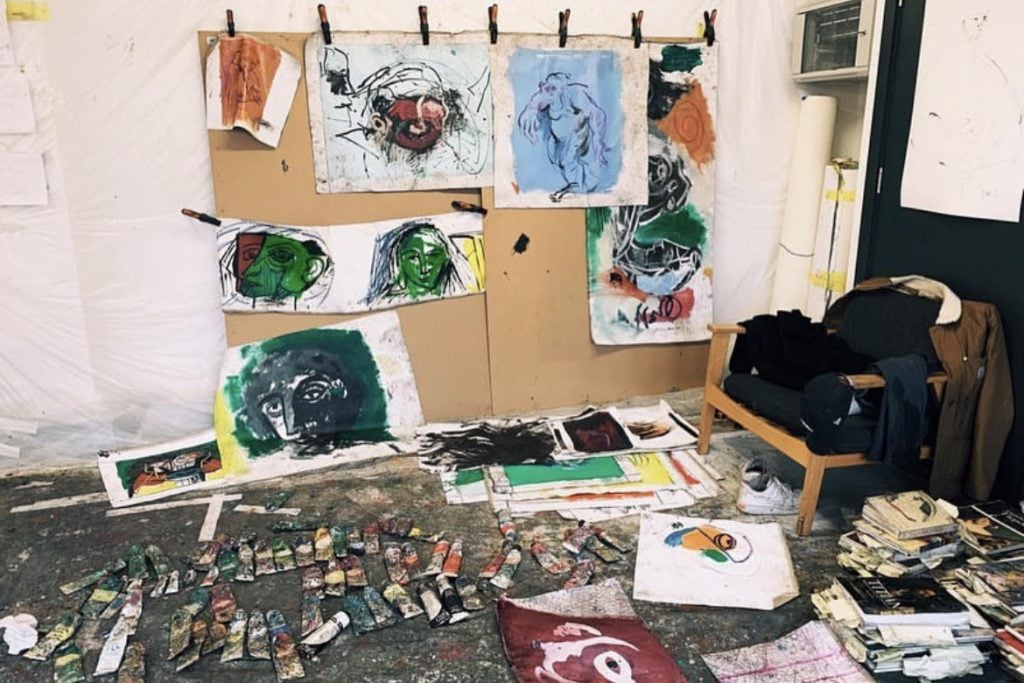
A glimpse into Guiragossian’s studio. Courtesy of Marc Guiragossian.
What role does color play in your artistic process? How do you select colors for each work?
Color plays a major role in my artistic process. Each color has its own meaning and feeling to me, I’m not sure why, but it’s embedded in my subconscious. This is a hard question to answer, as colors are just within me, I do what my intuition tells me, what my gut tells me.
You consider painting to be a form of dialogue, through which you can converse with artists from the past and modern-day peers. How do you approach that conversation in each of your works?
I do consider painting to be a dialogue with the past and the present. I always try to capture the essence of what Rubens or Tintoretto were trying to portray. A lot of what artists in the past have talked about still matters today. Many artists have taken the same ideas and emulated them in their own way. A great example of this are the Venus paintings created by Sandro Botticelli in The birth of Venus, and Manet’s Olympia.
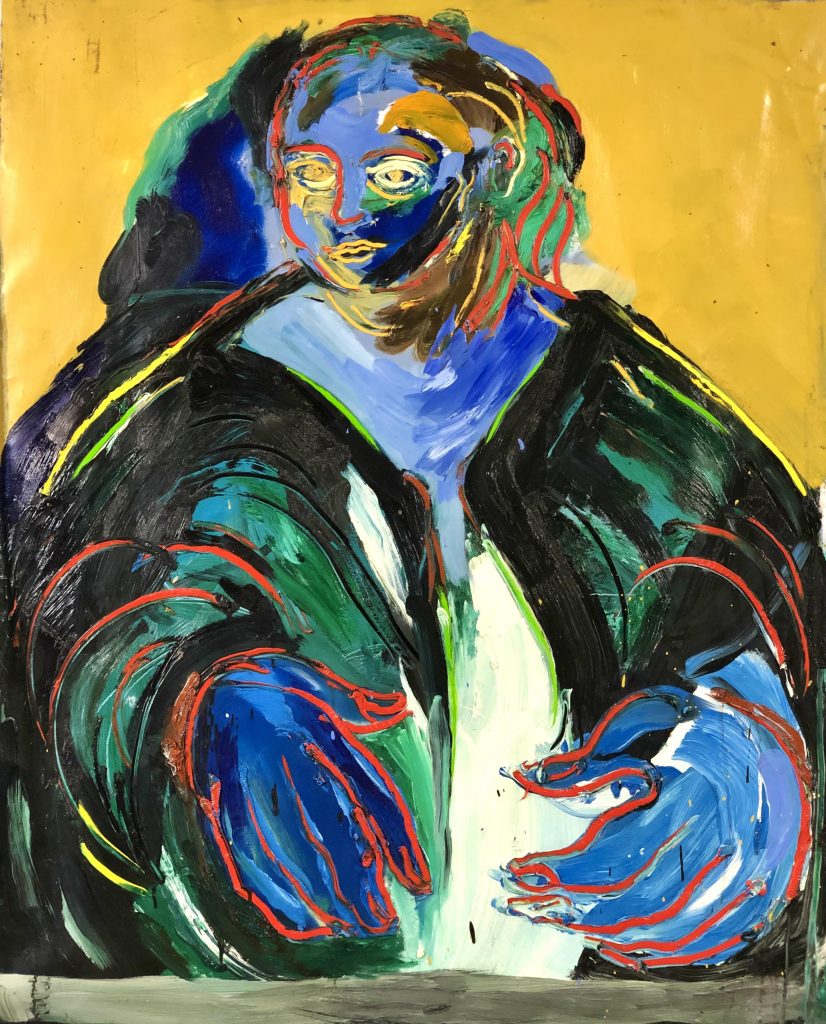
Marc Guiragossian, Untitled (2019). Available in Buy Now: Marc Guiragossian.
Which artist in the canon of art history has most influenced your own practice? Which of your contemporaries most inspire you?
There are so many artists that have influenced my practice. It started with Leonardo Da Vinci, when I first saw his grotesque drawings of the deformed heads. I was also influenced by Peter Paul Rubens painting The Drunken Hercules at the Zwinger Museum when I first moved to Dresden, Goya’s Los Caprichos etchings, Rembrandts entire series of self-portraits, and Picasso’s freedom to invent his own world.
If you could have been born during one artistic movement, which would it be?
I would love to have been born during the Renaissance period. Just imagine watching Titian paint The Flaying of Marsyas.
Don’t miss your chance to collect one of Guiragossian’s dynamic, surrealist paintings. Buy Now: Marc Guiragossian is live through May 4, and all works are available for immediate purchase.